Selling a property occupied by a tenant can sometimes turn into a real challenge for the owner. The owner often faces many obstacles, among which the tenant’s refusal to allow publication of photos of the apartment or house being sold.
This hurdle, although common, makes the sales process more complicated and unnecessarily prolongs the time your property is on the market. The refusal can be motivated by many reasons: respect for privacy, fear of intrusion, or sometimes even a certain desire to oppose.
How then to deal with this delicate situation without worsening the relationship with the tenant or hindering the sales process? We will provide you with an overview of this problem and offer key advice to overcome it.
Especially thanks to a very simple but effective technique based on artificial intelligence!
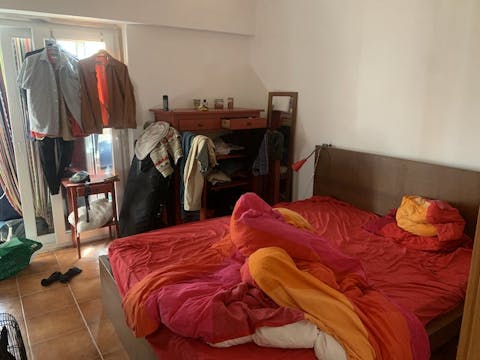
Before
❌ Unorganized room and intrusive for the tenant’s privacy
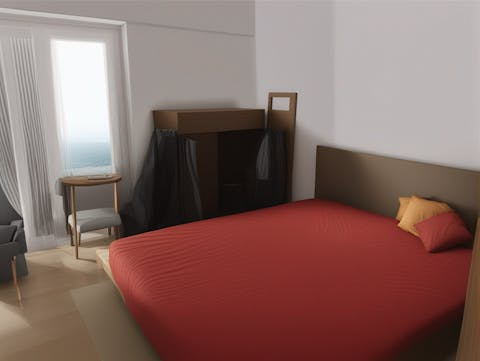
After
Understanding the Rights of Owners and Tenants
Selling an occupied property often questions the delicate balance between the owner’s right to sell their property and the tenant’s right to privacy.
When the challenge turns to the publication of photos of the occupied dwelling, the situation can quickly become complex. To navigate these sometimes turbulent waters with serenity, a clear and precise understanding of the respective rights is required.
Owner's Rights: Photographing Their Real Estate Property
In the United States, property owners generally have the right to photograph their own property. However, when it comes to occupied rental properties, tenant privacy rights must also be considered. Tenants have a reasonable expectation of privacy within their homes, which can limit the owner’s right to take and publish photographs of the interior spaces without tenant consent.
If the photography causes an invasion of privacy or distress to the tenant, it could be subject to legal challenge. Additionally, if a property is architecturally unique and potentially falls under copyright laws as a work of art, the photographer may need to seek permission from the copyright holder.
It’s important for property owners and real estate agents in the US to balance their rights with the privacy rights of tenants and to be aware of any local laws or regulations that may impact this balance.
Tenant's Rights: Refusing Photos for Privacy Reasons
In the United States, tenants have a right to privacy in their rented dwelling. This means they can refuse the taking and publication of photographs of their living spaces, particularly if these photos include their personal belongings or areas where they have an expectation of privacy.
The tenant’s refusal to allow photographs is rooted in their right to quiet enjoyment of the property. This legal principle ensures that tenants can use their rented space without undue interference. Photographing a tenant’s private living areas, especially without consent, can be considered an infringement of this right.
Landlords and real estate agents must navigate this aspect carefully. They should seek the tenant’s permission before taking and using photographs of occupied rental properties. If a tenant refuses, alternative strategies such as using old photos, virtual staging, or waiting until the property is vacant might be necessary.
Understanding and respecting the balance between a landlord’s right to sell or rent a property and a tenant’s right to privacy is crucial in these situations
The Right to the Image of a Private Property: A Gray Area
The right to the image of private places can sometimes resemble a real puzzle. Whether you are a real estate agent looking to promote a property for sale or a tenant concerned about their privacy, acting in accordance with the law is essential to avoid any legal inconvenience.
Therefore, inform yourself, ask the right questions, and prevent any litigious situation. Respecting everyone’s rights remains your best option for a serene and successful transaction.
The Laws and Regulations in Force
In the field of real estate law, there are certain laws that regulate the taking of photographs and the visiting of a rental property. First, it is generally possible to photograph a real estate property without the owner’s consent, except in cases where the property is the work of a creator protected by copyright – in this case, the property owner or the author themselves must give their prior consent. The issue of using images of certain national properties for commercial purposes is somewhat regulated by specific legal frameworks, but these are more applicable to public or historically significant buildings rather than private residences.
On the other hand, taking photos inside a dwelling without permission is considered an invasion of privacy, protected under various state and federal privacy laws. Therefore, anyone who violates this provision could face legal consequences, which vary by state but can include both civil and criminal penalties. As a landlord, it is essential to know these rules to respect the rights of tenants while asserting your own right to show and photograph your property for rental or sale purposes.
In the U.S., landlords must balance their right to sell or rent their property with the tenant’s right to privacy. Before photographing an occupied rental property, it is advisable to seek the tenant’s consent. Failure to do so not only risks legal action but can also damage the landlord-tenant relationship.
When the Tenant Refuses the Taking or Publication of Photos
In a situation where the tenant categorically refuses the publication of photos of the property for sale, it is crucial for the real estate agency and the owner to understand, respect, and address this refusal wisely.
Understanding the Tenant's Refusal
First and foremost, it is imperative to understand that tenants have an inalienable right to privacy. Under U.S. law, this right extends to the internal presentation of the premises that constitute the tenant’s dwelling.
According to legal principles in the United States, the use of photographs of a tenant’s dwelling is subject to their approval. Consequently, without the tenant’s consent, photographs cannot be disseminated or published, as doing so would be in violation of these legal provisions.
In the U.S., this is primarily governed by state privacy laws and the concept of a reasonable expectation of privacy, which tenants hold within their own homes. Landlords and real estate agents need to navigate this carefully to avoid legal issues and respect the tenant’s right to privacy.
Consequences of Tenant Non-Cooperation in the Sales Process
Suite à un refus du locataire, le processus de vente peut se complexifier considérablement. Le bien en question risque de rester plus longtemps sur le marché et son attractivité peut diminuer en l’absence de photographies adéquates.
Toutefois, dans ces scénarios délicats, il est recommandé de négocier avec le locataire et de trouver des alternatives respectueuses de son droit à la vie privée, tout en maximisant les chances de conclure la vente.
Cela peut impliquer de prendre des photos où les possessions personnelles du locataire ne sont pas visibles ou d’attendre que le locataire quitte la propriété pour vendre. Assurer une communication ouverte et honnête avec le locataire peut aider à déminer les tensions et à trouver un terrain d’entente.
What to do in such a situation?
Faced with a tenant who refuses the taking or publication of photos of your real estate property, it is crucial to act tactfully to avoid further conflicts. Adopt a peaceful and understanding attitude. Talk with the tenant to understand their reasons and fears. Assure them that everything will be done in respect of their rights and privacy.
Fortunately, there are solutions for managing situations where a tenant refuses to allow photos of the dwelling they occupy to be published, potentially facilitating the sale.
In such cases, it is appropriate to discuss with the tenant to better understand their concerns and find mutually beneficial solutions.
This could involve negotiating the timing of the photo shoot, the choice of rooms to be photographed, or the guarantee that their personal belongings will not be visible in the images.
You could also propose to the tenant to schedule the photo shoot when they are not in the apartment, to avoid any discomfort.
The Modern Solution: Anonymizing Photos Using Artificial Intelligence
If the tenant still refuses, here is a surprising solution that can greatly help in convincing them.
You can propose to edit the photos to ensure that no personal belongings of the tenant are identifiable.
How? Thanks to our artificial intelligence that will slightly modify the furnishings of a room while preserving its overall appearance.
Here are some examples:
Original Photo
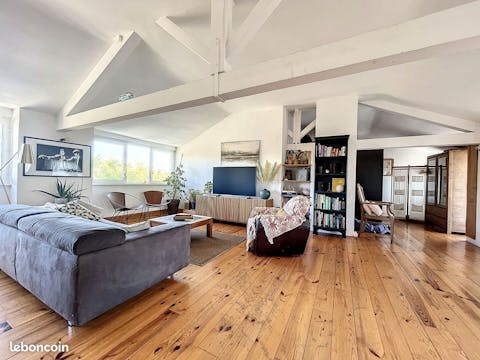
Interior Slightly Modified by AI

Original Photo

Interior Slightly Modified by AI

If you desire more changes, you can also choose to completely change the layout of the room:
Original Photo

Interior Slightly Modified by AI

Method to Follow for Modifying Real Estate Photos Using AI
1. Create an account on InstantDecoAI here.
2. Add your photo
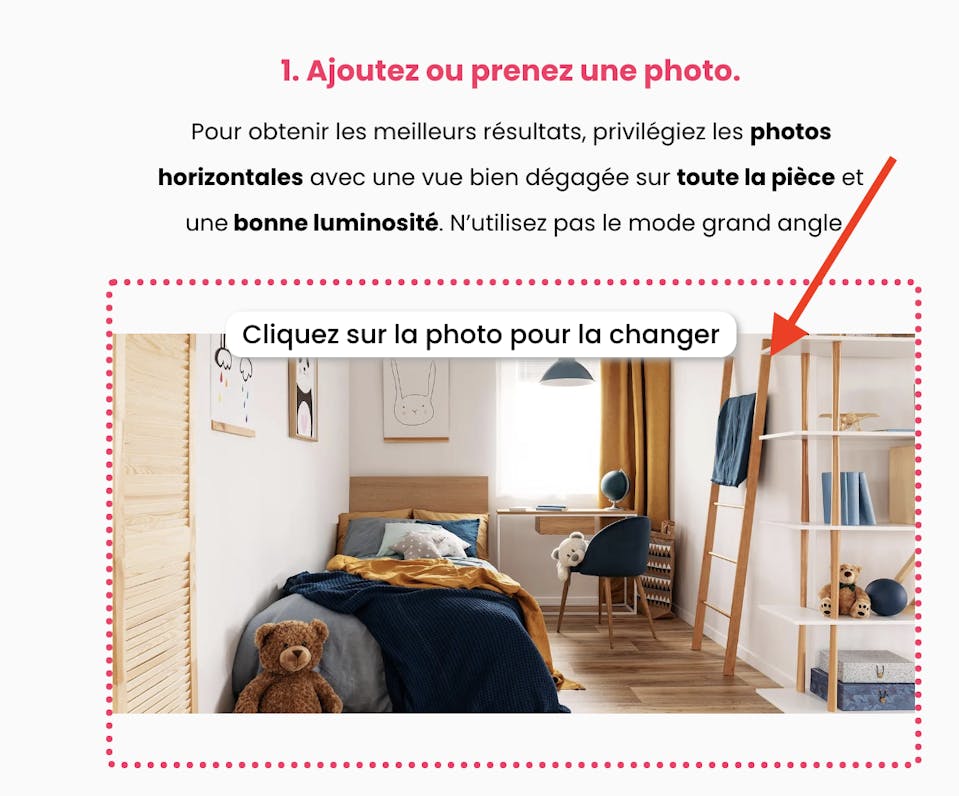
3. Choose the “Decoration” mode and check the “Very minor changes” option
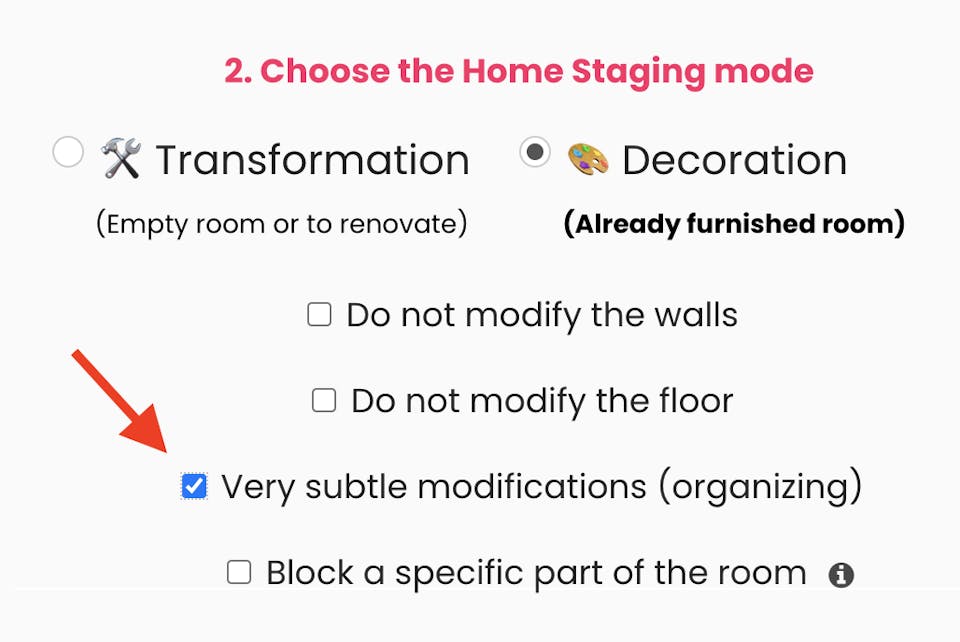
4. Select the room type and decoration you want
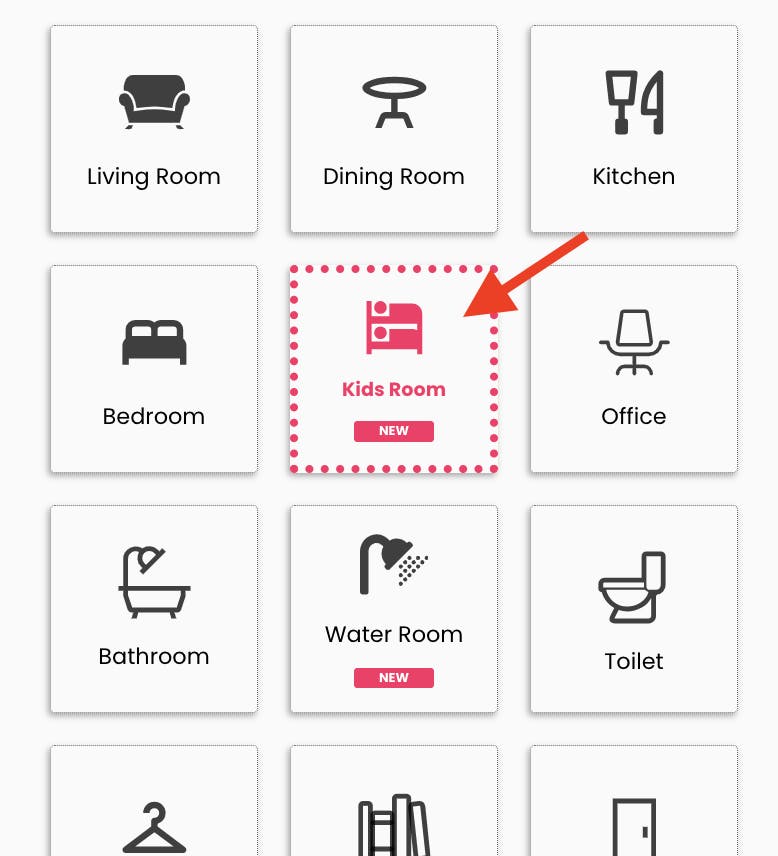
5. Start the generation and download the result obtained

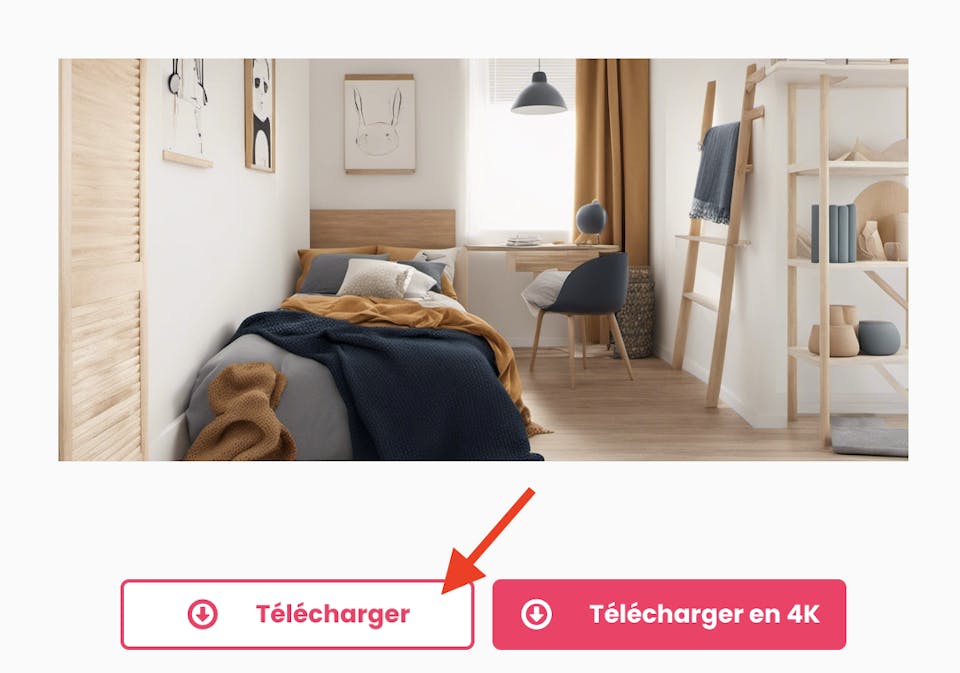
Conclusion
Selling a rented property requires a lot of tact and patience, and respecting the tenant’s rights is paramount.
Remember, what’s at stake is not just a real estate transaction, but also the peace and comfort of a person’s life. The more understanding and respectful you are towards your tenants, the more likely you are to successfully complete your sale project.
